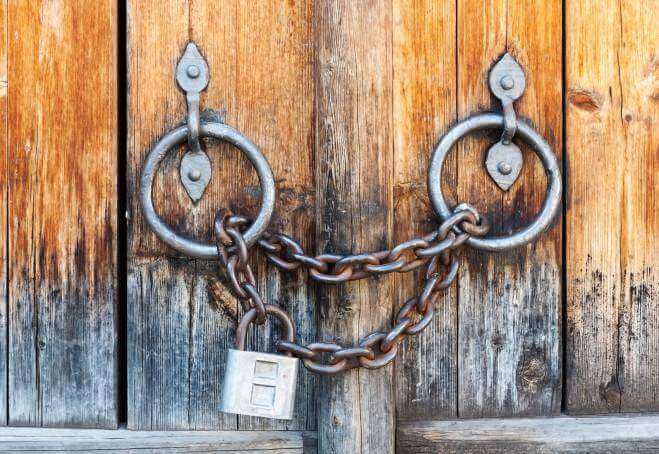
Securing Your Belongings
While traveling, what we carry on our back is minimal and represents the most important things we decide to take with us. In a way, our bag and our belongings are the closest things we have to a concept of ‘home’. Therefore, it can be upsetting if our bag or belongs get stolen or lost. In this article, we will cover some ways to protect our belongings while on the move.
I will start by saying that from my experience, the biggest risk to your belongings is you. In most cases, people lose or damage their belongings it is a result of negligence and could have been easily avoided with a little more attention. So the first step would probably be being well aware to the importance of your belongings not leaving them out of sight while traveling and securing them when you arrive.
As for the risk of having your belongings stolen, it does exist in various levels depending on the country in which you are traveling. For example, traveling in Lima, Peru requires a lot more attention than traveling in Oslo, Norway. That means that we have to be aware of where we are at and prepare our level of awareness in advance. But if you check this content, you will know that there are many ways you can be robbed, and there are specific threats in each country. We will not cover those threats and the ways to avoid them here, but instead give a few rules that may prove helpful. First of all, prepare yourself in advance with information about how secure a place is, whether or not you can safely go out at night, and the best way to do so. Get this information from locals. Don’t be ashamed to ask what areas should be avoided and any other safety recommendations they might be able to give you.
There are two ways of being robbed: violently and not violently (for example, the use of weapons vs. snatching your wallet). The most important thing if you are lucky enough to be robbed violently is to not object, since your life is more important than any possession you might have. In this case, just focus on removing yourself from the situation without any physical harm. As for the non-violent robberies, it is important to remember that most thieves select their victims in advance by two major factors which are how valuable your possessions are and how easily they can rob you. The best protection is to not flaunt your valuables. For example, not using your iPhone in crowded streets and not parading around other valuables. In addition to that, you should keep your items secure.
Setting your iPhone or wallet on a desk or in an easily accessible pocket of your bag is like putting milk in front of a cat.
One of the best pieces of advice I can give you when you start traveling would be to take as little valuables as possible. Valuables create worries and attachments and do not allow you to fully enjoy the freedom of traveling. The key here is to balance between how badly you need an item and the cost of losing it. It is important to mention that traveling greatly increases the chance of losing or damaging your possessions. Therefore, to take only the bare necessities is the best way to go.
A few quick tips to properly secure your luggage while traveling:
- If you stay in hostel dorms, choose ones that have lockers and secure your possessions with your own lock. If you have your own room and your know it’s going to be cleaned, secure your possessions in a safe place, ask for the room not to be cleaned, or even lock the door with your own lock if you leave your valuables there.
- Don’t travel with a lot of cash. Use credit cards and keep your cash and passport close to you by using a money belt.
- Your risk of being robbed in a non-violent way increases greatly in crowded places such as metro stations and transportation hubs. The same goes for violent crimes in places that are desserted. Try to avoid walking in deserted areas even during the day. One great way to decrease the chance of a violent crime is to travel in a group. Also, try not to get drunk – it makes you an easy target as you are unable to defend yourself.
- Hiding some cash in your shoe, and using a money belt is good. Have some money available so if you are getting robbed violently, you can promptly offer the robbers money, instead of making them look for it in form of hidden credit cards and large sums. (Thanks for that Jess!)
- Make sure you know what the most valuable possessions you have and have a clear strategy for defending them. For example, if your iPhone is very important decide in advance where you are going to put it to be discreet and if you carry your passport and credit card in your wallet take extra care to secure it. The best way to understand what the most important items for you is to imagine actually losing them and how it would affect you. Once you know how important they are, you can prioritize and understand the effort you want to put into minimizing the risk of losing those items.
In conclusion, traveling is fun but does bear some risks. Most of those risks are avoidable and can be prevented by simply staying aware of your surroundings. Once again, traveling is all about freedom – and possessions are all about attachment – so taking the minimum of what you need will allow you to enjoy a stress-free journey.



I found this article interesting- could I advise that people always have some cash on them? It can help you out of dangerous situations if you give robbers what they are looking for. I learnt this the hard way by being taken hostage by men with machine guns for over an hour last year- but I completely agree, do not resist violent attacks!
Thanks Jess, I updated the article according to your feedback!
This is really useful! Thank you
Thank you Li, glad to hear!